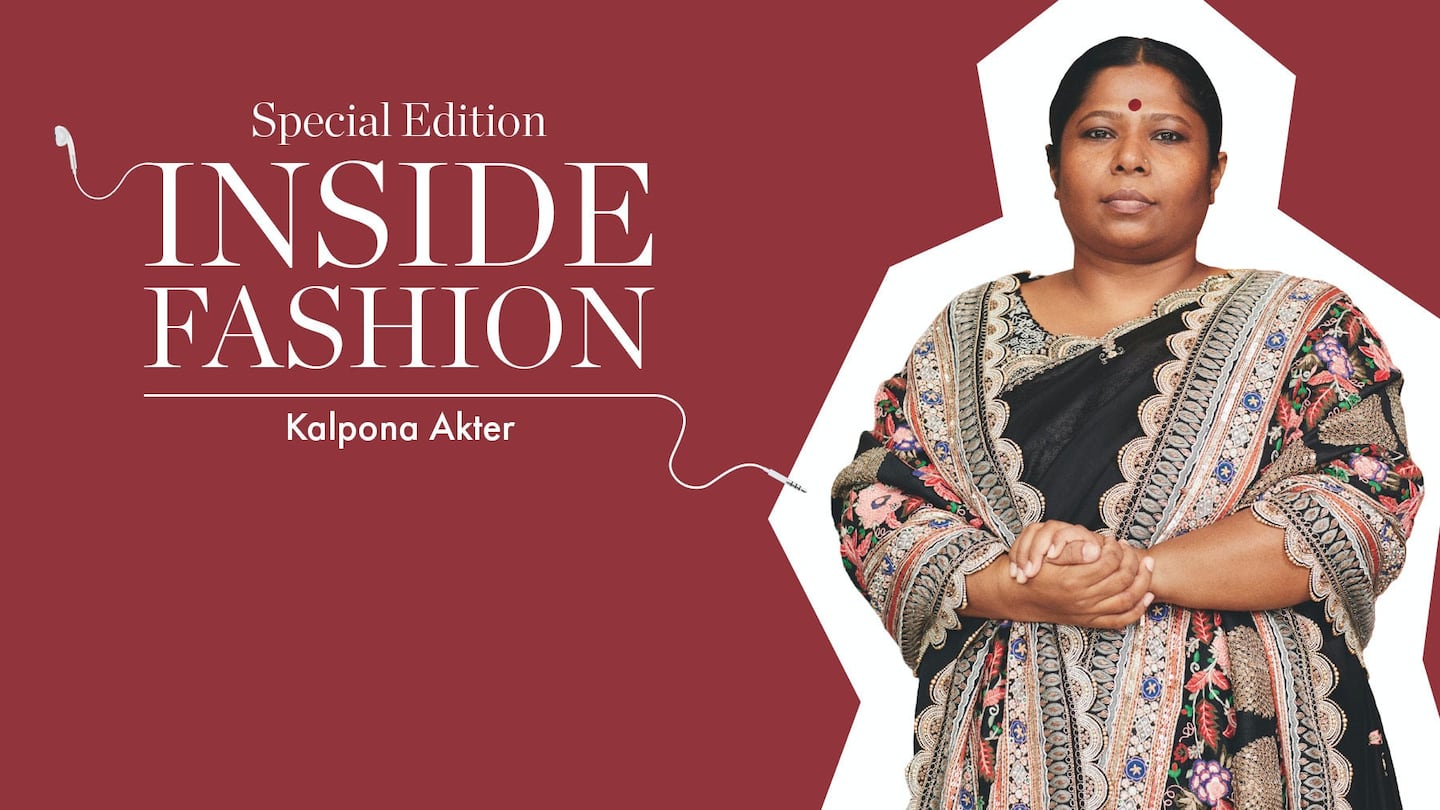
The Business of Fashion
Agenda-setting intelligence, analysis and advice for the global fashion community.

Agenda-setting intelligence, analysis and advice for the global fashion community.

To subscribe to the BoF Podcast, please follow this link.
LONDON, United Kingdom — Kalpona Akter is no stranger to adversity. The labour-rights activist and founder of the Bangladesh Centre for Worker Solidarity has been campaigning for worker safety, fair wages and the right to labour unions for over a decade, even spending time in prison for doing so.
In the latest special edition of the BoF Podcast, Akter discusses the current plight of the 4 million daily wage workers in Bangladesh, who manufacture cheap apparel for western retailers. During the coronavirus pandemic, factories have closed, with orders cancelled and wages unpaid.
“If we talk about the consequences, it’s a totally different world. [As] this pandemic goes on, the brands will lose a fraction of their profits,” she told BoF Editor-in-Chief Imran Amed. “But for workers, they will lose money, they will lose jobs — and no money means no food.”
ADVERTISEMENT
Bangladesh’s economy is held up by the cheap manufacturing of clothing, making it the second-largest apparel producer after China, with garment exports accounting for 84 percent of the country’s overall exports. The country is set to lose around $6 billion in export revenue this financial year.
[Brands and retailers] need to understand that we need them now.
“There is life and livelihood and workers... have to choose, because they know if they don’t come to work [then] no one will be paying them,” she said. “Can they buy [food] for... their children? Can they pay for their house rent? Can they pay for their medical [treatment]? Nobody’s thinking about it.”
According to a survey carried out by The Center for Global Workers' Rights, many workers had been sent home without pay and nearly all western buyers refused to contribute to worker wages. Several retailers including H&M, Inditex and Target, announced their commitment to pay for completed orders or ones currently in production. The Workers Rights Consortium is currently tracking brands that have committed to paying in full for orders completed and in production, as well as brands that have not, including: Asos, Urban Outfitters, Under Armour, Gap, Arcadia, Bestseller, C&A, Peacocks, J.C. Penney, Kohl's, Asda, Sears, Ross Stores, Mothercare and Primark.
Although the nationwide lockdown remains in place until May 16, garment workers in Bangladesh's Dhaka region have been protesting in recent weeks, demanding lost wages be paid.
“Everyone in the supply chain needs to understand that all the… cancellations [and] not getting money is put on the workers' shoulders,” Akter said. “Why is it always us that has to suffer, even in this pandemic?”
Akter underscored that it is time for the fashion industry at large to come forward and support. “The situation is already dire… [brands and retailers] need to understand that we need them now,” she said. “They need to think about the future, this pandemic will go [and] we will make clothes for these brands and retailers again… but if you don’t look at our workers now, then the future will be a difficult time.”
This article was revised on 06 May 2020. A previous version of this article misstated that Inditex decided to pay for orders only after the survey findings from The Centre for Global Workers’ Rights were published. This is incorrect. Inditex's policy to fulfil its commitments to its suppliers was made public before the survey was released.
To learn more about Kalpona Akter’s work click here to read her cover story, which originally appeared in a BoF 500 special print edition in 2018.
ADVERTISEMENT
Subscribe to BoF Professional for unlimited access to BoF articles, plus exclusive benefits for members. For a limited time, enjoy a 25 percent discount on the first year of an annual membership, exclusively for podcast listeners. Simply, click here, select the Annual Package and use code PODCASTPRO at the checkout.
To contact The Business of Fashion with comments, questions, or speaker ideas please e-mail podcast@businessoffashion.com.
A US regulator has banned most uses of the clauses, which started as a way for fashion companies to prevent senior executives from walking off with trade secrets, but have become a standard retention tool.
Check out this week’s new partners and openings on BoF Careers, the global marketplace for fashion talent.
BoF Careers provides essential sector insights for fashion designers this month, to help you decode fashion’s creative and commercial landscape.
This week, talent expert Suki Sandhu OBE and advisor and executive search consultant Karen Harvey shared insights on the core skill sets expected of leaders and managers in the fashion industry today. BoF Careers shares key learnings from the event.